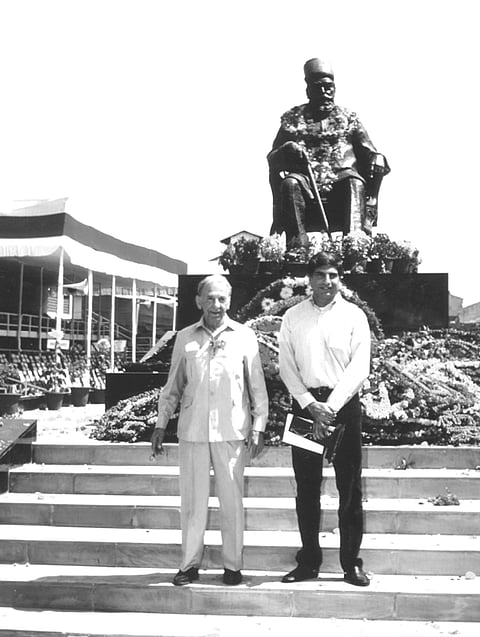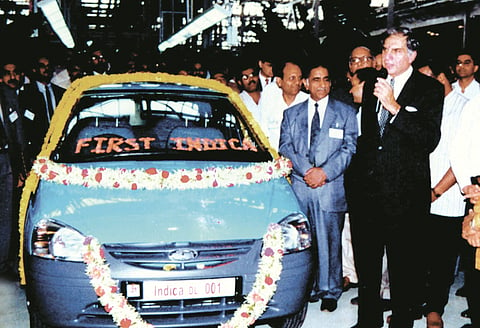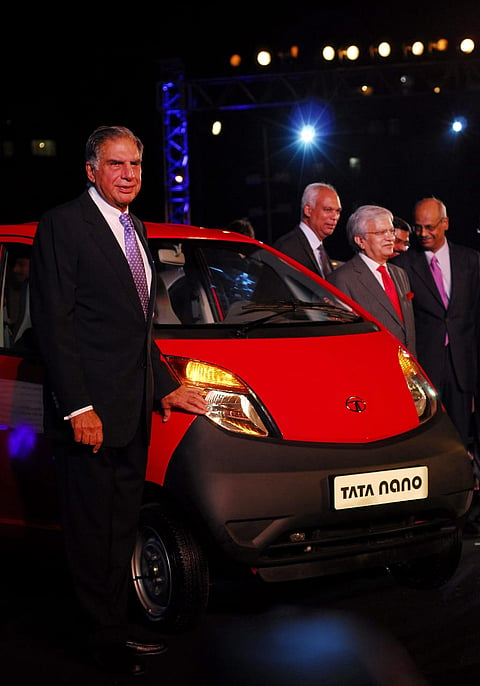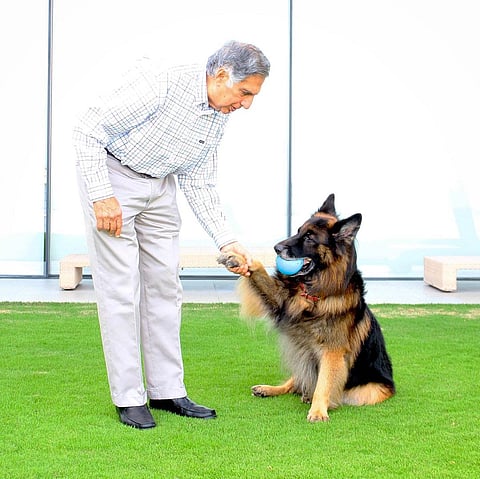Ratan Tata built an identity for himself in the Indian consciousness that went above and beyond his famous surname. It is an identity that resonates with innovation, philanthropy, and visionary leadership.
Ratan Tata: A Portrait Of Innovation
Ratan Tata helmed the Tata group during the period of India's liberalisation and globalisation, deftly managing to create a strong global presence for the legendary Indian business house
This photo story captures the moments that defined him and offers a glimpse into the life of a man who led one of India's biggest business houses through the defining era of Indian globalisation.

When J.R.D. Tata stepped down as Chairman of Tata Sons, the holding company of the Tata group, Ratan Tata was his chosen successor.

Ratan Tata had built his career in the Tata group of companies from the ground up, joining on the shop floor of Telco, which would become tata Motors. He rose through the ranks, achieving success in various positions, including by turning around NELCO.


During his tenure as Tata Sons Chairman from 1991 to 2012, Ratan Tata streamlined operations and increased turnover many fold. His innovations include the Tata Indica and the controversial Tata Nano.

Helming the Tata Group at the time of Indian liberalisation and globalisation, Ratan Tata deftly increased the company's global footprint, making many strategic acquisitions such as Jaguar Land Rover, Corus Steel and Tetley Tea. At one point Tata was one of U.K.'s biggest employers.

Beyond the corporate world, Ratan Tata was a philanthropist who contributed significantly to improve education and healthcare. He continued as the Chairman of Tata Trusts, the philanthropic wing of the company. His latest venture included a tertiary care facility for pets.